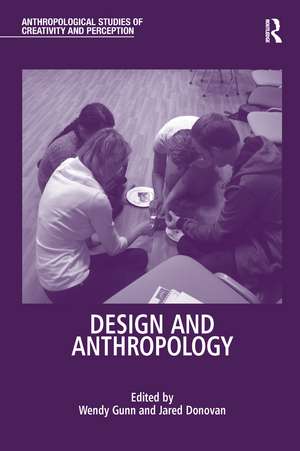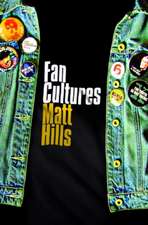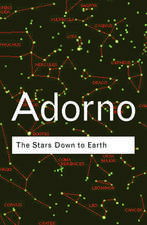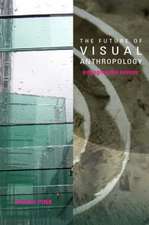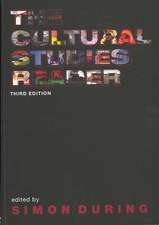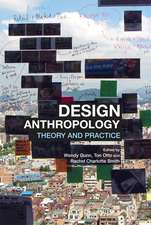Design and Anthropology: Anthropological Studies of Creativity and Perception
Editat de Wendy Gunn, Jared Donovanen Limba Engleză Paperback – 8 noi 2016
| Toate formatele și edițiile | Preț | Express |
|---|---|---|
| Paperback (1) | 386.31 lei 6-8 săpt. | |
| Taylor & Francis – 8 noi 2016 | 386.31 lei 6-8 săpt. | |
| Hardback (1) | 1108.03 lei 6-8 săpt. | |
| Taylor & Francis – 5 dec 2012 | 1108.03 lei 6-8 săpt. |
Preț: 386.31 lei
Nou
Puncte Express: 579
Preț estimativ în valută:
73.99€ • 76.23$ • 61.98£
73.99€ • 76.23$ • 61.98£
Carte tipărită la comandă
Livrare economică 24 februarie-10 martie
Preluare comenzi: 021 569.72.76
Specificații
ISBN-13: 9781138244788
ISBN-10: 1138244783
Pagini: 288
Dimensiuni: 156 x 234 x 25 mm
Greutate: 0.41 kg
Ediția:1
Editura: Taylor & Francis
Colecția Routledge
Seria Anthropological Studies of Creativity and Perception
Locul publicării:Oxford, United Kingdom
ISBN-10: 1138244783
Pagini: 288
Dimensiuni: 156 x 234 x 25 mm
Greutate: 0.41 kg
Ediția:1
Editura: Taylor & Francis
Colecția Routledge
Seria Anthropological Studies of Creativity and Perception
Locul publicării:Oxford, United Kingdom
Notă biografică
Wendy Gunn is Associate Professor of Design Anthropology at the University of Southern Denmark. Jared Donovan is Lecturer in Interaction Design at Queensland University of Technology, Australia.
Recenzii
’The book is innovatory, ambitious and important. It asks a radical question: What methodological transformations in design practices are necessary to build better relations between designing and using?. In the text distinctions between design, production and use, between perception, creativity and skill, are questioned, while anthropology, engineering, management, archaeology, philosophy, theatre and communication studies are challenged to find a common language of engagement. Design anthropology is a burgeoning field and this book is a significant development.’ Nigel Rapport, University of St Andrews, UK ’How to think about design? This is one of the key challenges of our future-obsessed times and this book is a provocative contribution to the debate. Focusing on the concrete and the mundane whilst sharpening the conceptual tools for understanding sociotechnical change, its essays thoroughly complicate the popular but misleading notion that design equals experts solving given problems.’ Eeva Berglund, author of Knowing Nature, Knowing Science and Legacies of Empire and Spatial Divides ' ... this book to be of great importance because it speaks about previously unwritten aspects on how design can be understood and used in our everyday lives.' Qualitative Research
Cuprins
Chapter 1 Design Anthropology: An Introduction, Wendy GunnJared Donovan; Part I Using and Producing; Introduction1 The Perception of the User–Producer, TimIngold; Chapter 2 The Patient as Skilled Practitioner, KyleKilbourn; Chapter 3 Hearing Poorly with Skill, DennisDay; Chapter 4 Gliding Effortlessly Through Life? Surfaces and Friction, GrietScheldeman; Chapter 5 An Institutional View on User Improvisation and Design, MaxRolfstam, JacobBuur; Part II Designing and Using; Introduction2 Defining Moments, JohanRedström; Chapter 6 The Time it Takes to Make: Design and Use in Architecture and Archaeology, LesleyMcFadyen; Chapter 7 Moving from Objects to Possibilities, JaredDonovan, WendyGunn; Chapter 8 Emergence of User Identity in Social Interaction, HenryLarsen, ClausHave; Chapter 9 The Role of Supply Chains in Product Design, BenedicteBrøgger; Part III People and Things; Introduction3 Humanity in Design, Peter-PaulVerbeek; ch10 Anthropological Fieldwork and Designing Potentials, MetteKjærsgaard, TonOtto; ch11 Designing Behaviour, NynkeTromp, PaulHekkert; ch12 Emergent Artefacts of Ethnography and Processual Engagements of Design, JamieWallace; ch13 Theories and Figures of Technical Mediation, StevenDorrestijn; epilo Epilogue; Chapter 14 Utopian Things, PelleEhn;
Descriere
Design and Anthropology challenges conventional thinking regarding the nature of design and creativity, in a way that acknowledges the improvisatory skills and perceptual acuity of people. Combining theoretical investigations and documentation of practice based experiments, it addresses methodological questions concerning the re-conceptualisation of the relation between design and use from both theoretical and practice-based positions.
